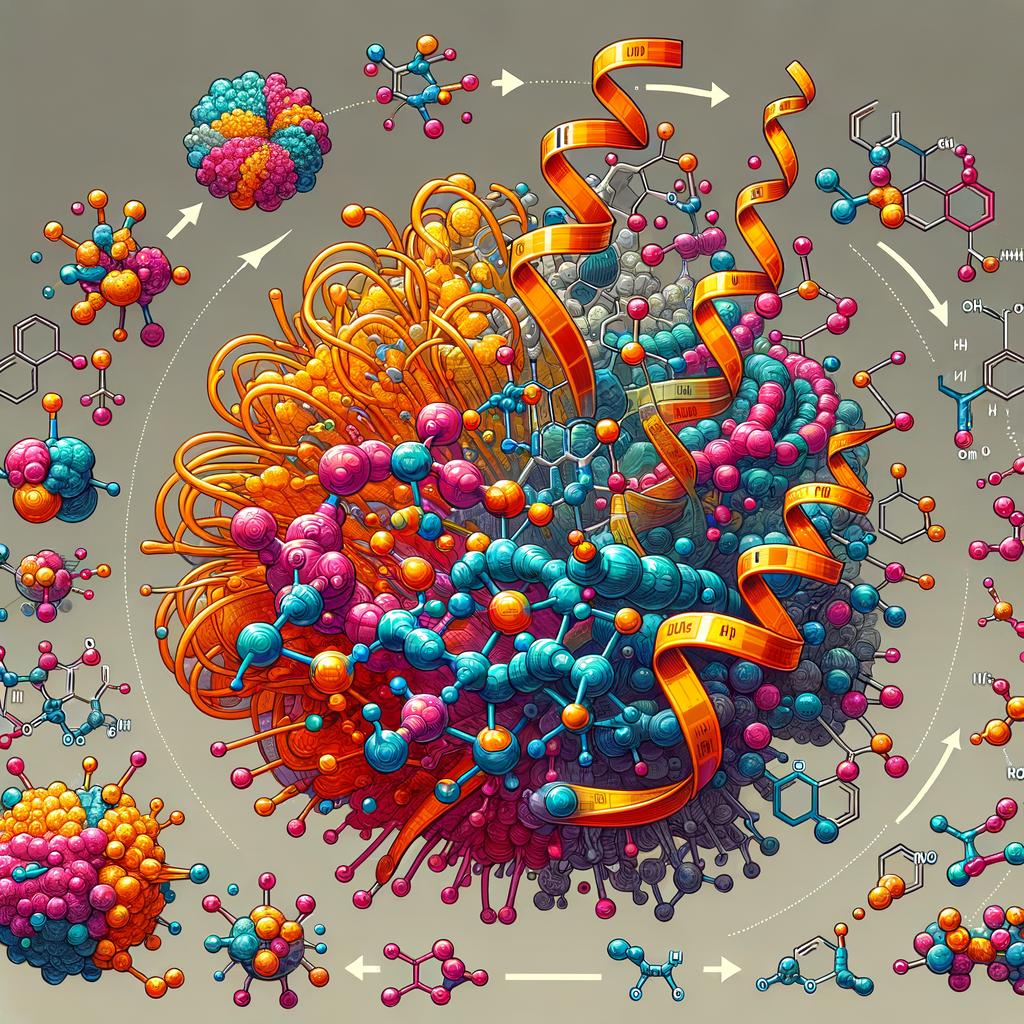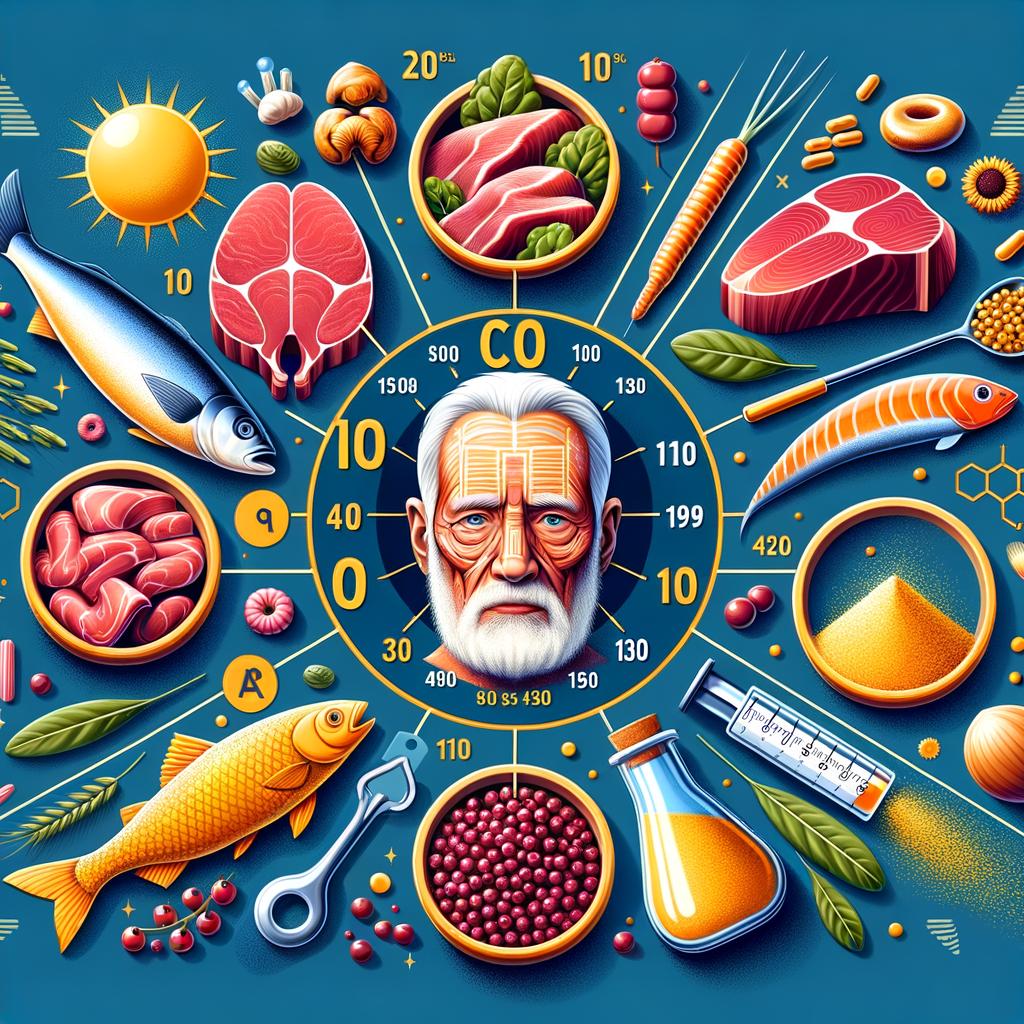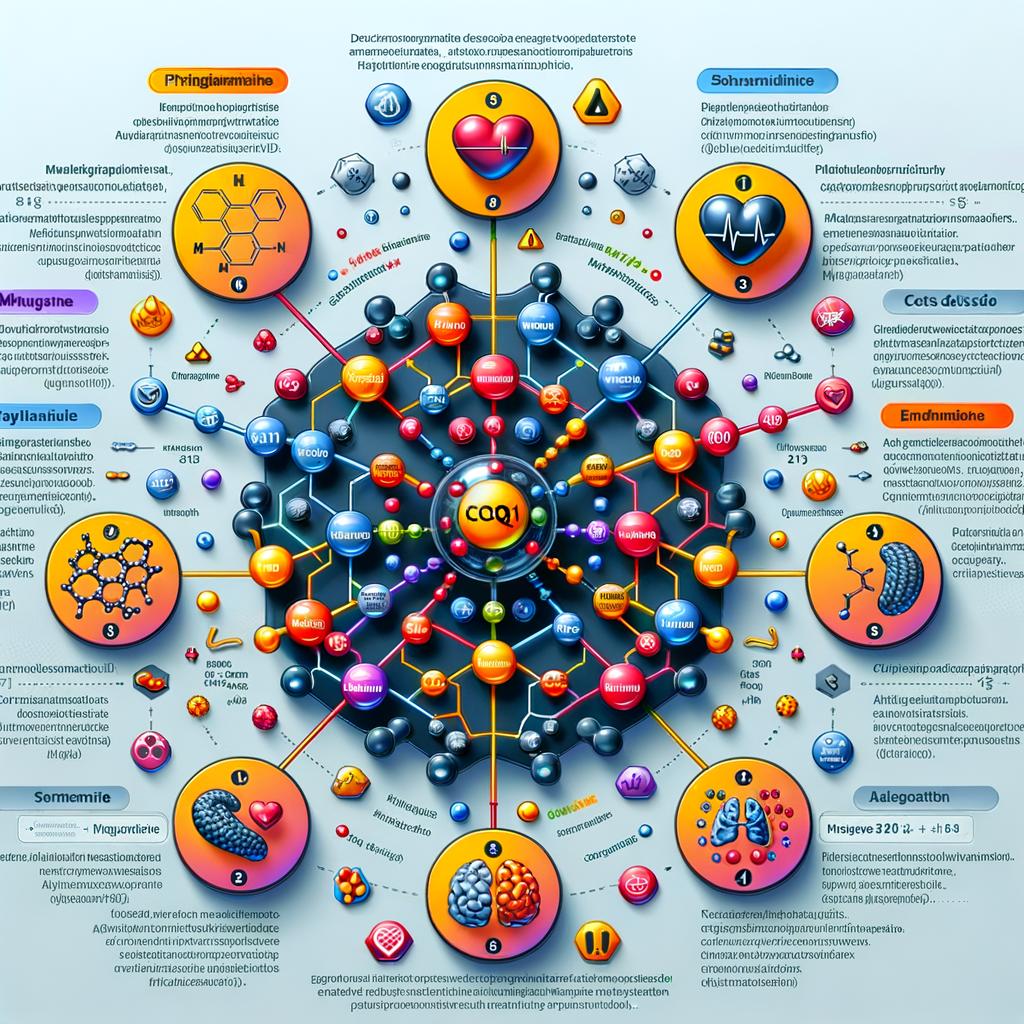Dive into the realm of potent antioxidants with our latest blog post, mirroring a captivating YouTube video, “Discovering CoQ10: The Crowned Monarch of Antioxidants”. Unlock the mysteries surrounding Coenzyme Q10- widely known as CoQ10, an omnipresent, vitamin-like compound in our bodies. This luminary entity holds power over energy production and shields us from the clutches of damaging free radicals as a superior antioxidant. Yet, the transformation from its slumbering state, ubiquinone, to a lively ubiquinol demands understanding. Join us on this enlightening journey, where we pan through its natural presences, dwell on its declining count as we age, and ponder on health conditions that might arise from a potential deficiency. We will also discuss the appropriate dosage taking into consideration age, health, and the condition under treatment. Proceed with caution, and immerse yourself in this fascinating encounter with the crowned monarch of antioxidants, the CoQ10.
Table of Contents
- Unveiling CoQ10: A Powerhouse of Antioxidants Hiding in Our Cells
- Decoding the CoQ10 Connection: From Ubiquinone to Ubiquinol
- CoQ10 Sources and Its Significance in Ageing and Chronic Diseases
- Demystifying CoQ10 Dosage: Tailoring Needs Based on Individual Health Conditions
- Q&A
- In Conclusion
Unveiling CoQ10: A Powerhouse of Antioxidants Hiding in Our Cells
Did you know CoQ10, a vitamin-like compound, quite literally powers our cells? Native to almost every cell in our body, CoQ10, or Coenzyme Q10, acts as a vital cog in the machinery of energy production. This powerful antioxidant aids in fighting against damaging free radicals, which are notorious for causing an array of health complications. However, CoQ10 is not readily available for use. It must first be transformed from its inactive avatar – ubiquinone, into its powerful, active form – ubiquinol.
Whilst CoQ10 is present in certain natural foods such as:
- Oily fish
- Organ meats
- Eggs
- Nuts
- Whole grains
the reality is, consuming these foods alone won’t significantly bolster the levels of CoQ10 in our body. What’s more, the production of this potent compound decreases as we age. Deficiencies could potentially lead to chronic health conditions like heart disease and Parkinson’s. The dosage of this compound varies, with some requiring between 60 to 500 milligrams based on factors such as age, health status, and specific conditions. However, it is crucial to note that pregnant or breastfeeding individuals should avoid use. For a more tailored recommendation, you may wish to contact your registered dietician.
Let’s have a quick glimpse of key takeaways about CoQ10:
| Item | Details |
|---|---|
| Name | Coenzyme Q10 (CoQ10) |
| Type | Vitamin-like compound and a powerful antioxidant |
| Found In | Almost every cell of the human body |
| Role | Central in energy production and fighting free radicals |
| Consumption Advisory | Not for those pregnant or breastfeeding |
Decoding the CoQ10 Connection: From Ubiquinone to Ubiquinol

The all-powerful Coenzyme Q10 (CoQ10) exists naturally in almost every cell of our bodies. While this vitamin-like compound finds its origins in a myriad of sources including oily fish, organ meats, eggs, nuts and whole grains, the quantity of CoQ10 present in food isn’t sufficient to significantly enhance the body’s CoQ10 levels.
Before we can tap into the powerhouse benefits of CoQ10, our bodies must convert this compound from its inactive form, Ubiquinone, to its activated counterpart, Ubiquinol. The importance of this conversion cannot be overemphasized, as CoQ10’s primary function is twofold – it plays an integral role in energy production, and acts as an antioxidant working tirelessly to reduce harmful free radical formation. However, this incredibly beneficial antioxidant decreases as we age, with deficiency linked to various medical conditions, including heart disease and Parkinson’s disease.
| Age | Possible Dosage of CoQ10 |
|---|---|
| Young Adults | 60 milligrams |
| Middle Age | 200 milligrams |
| Seniors | 500 milligrams |
When considering CoQ10 supplementation, it’s vital that individual factors such as age and health condition dictate the suitable dosage. It’s also worth noting that this sector of supplementation is not deemed suitable for pregnant or breastfeeding women. For more tailored advice and directives, contacting a registered dietitian is strongly advised.
CoQ10 Sources and Its Significance in Ageing and Chronic Diseases

Championed as the Crowned Monarch of Antioxidants, Coenzyme Q10, or CoQ10 for short, is a naturally occurring compound, vitally present in almost every cell of the human body. It’s functionality is as crucial as it is versatile: from playing a central role in energy production to serving as an antioxidant, protecting our cells against the damaging effects of free radicals.
To harness the benefits of CoQ10, our bodies convert it from its inert form, ubiquinone, to its potent, active form, ubiquinol.
Food items such as oily fish, organ meats, eggs, nuts, and whole grains are blessed with the presence of CoQ10. However, it’s worth noting that the quantities contained in these foods aren’t sufficient to bring about a significant increase in CoQ10 levels within your body. As we advance in age, the levels of CoQ10 naturally decrease, and a deficiency could contribute to chronic diseases, including heart disease and Parkinson’s. The recommended dosage typically varies based on a person’s age, health, and underlying conditions, lounging between 60 milligrams to 500 milligrams. Please refrain from usage if you’re pregnant or breastfeeding.
Demystifying CoQ10 Dosage: Tailoring Needs Based on Individual Health Conditions

The Coenzyme Q10 (CoQ10), integral to every cell in our bodies, positions as the linchpin in energy production. More than an energy catalyst, it possesses antioxidant properties, helping combat perilous free radicals. Naturally, it can be found in a roster of foods including oily fish, organ meats, eggs, nuts and whole grains. But before you munch on these, remember: the food-derived quantity is insufficient to spike your body’s CoQ10 levels significantly.
Your CoQ10 needs are perched on a scale sliding based on your age, health status and any ongoing medical treatment(s). This means the dosage can oscillate between 60 milligrams to 500 milligrams. On one end of the spectrum, you may find seniors or those tackling heart diseases and Parkinson’s Disease, often confronted by CoQ10 deficiency. Consequentially, these individuals could require higher doses as compared to others. Yet, a caveat to heed – when expecting or nursing, it’s advisable to steer clear from CoQ10, unless under professional advice.
| Food Source | CoQ10 Content |
| Oily Fish | Very Low |
| Organ Meats | Moderate |
| Eggs | Moderate |
| Nuts | Low |
| Whole Grains | Low |
- Age, health status and condition needing treatment are factors that determine the necessary dosage of CoQ10
- The dose can range from 60 milligrams to 500 milligrams
- People with certain conditions such as heart disease and Parkinson’s may require higher dosages due to possible CoQ10 deficiencies
- Pregnant and breastfeeding individuals are generally advised not to use CoQ10 unless prescribed.
Q&A
Q: What is CoQ10 and why is it important?
A: CoQ10, also known as coenzyme Q10, is a vitamin-like compound that plays a central role in energy production and acts as an antioxidant to reduce harmful free radical formation in the body.
Q: How can the body utilize CoQ10?
A: The body must convert CoQ10 from its inactive form, ubiquinone, to its active form, ubiquinol, in order to use it effectively.
Q: Where can CoQ10 be found in foods?
A: CoQ10 is naturally found in oily fish, organ meats, eggs, nuts, and whole grains. However, the amount in food isn’t enough to significantly increase CoQ10 levels in the body.
Q: What are the potential benefits of taking CoQ10 supplements?
A: CoQ10 supplementation may help maintain adequate levels of CoQ10 in the body, especially as levels decrease with age. It may also be beneficial for individuals with medical conditions such as heart disease and Parkinson’s disease.
Q: How much CoQ10 should be taken daily?
A: The recommended dosage of CoQ10 varies depending on a person’s age, health, and condition. It can range from 60 milligrams to 500 milligrams, so it’s important to consult with a healthcare professional before starting any supplementation regimen.
Q: Are there any precautions to consider when taking CoQ10 supplements?
A: It is advised not to use CoQ10 if you are pregnant or breastfeeding. As with any supplement, it’s important to consult with a registered dietitian or healthcare provider before starting a new regimen.
In Conclusion
And there we have it, the King of Antioxidants unmasked – CoQ10. As we’ve discovered, this vitamin-like compound is a central player in our body’s energy production and an essential guard against harmful free radicals. From oily fish to whole grains, finding CoQ10 is not a herculean task, though significantly upping your levels may require more serious supplementation based on age, health status, and individual health conditions. Remember, its use is not recommended during pregnancy or nursing. For more professional guidance on CoQ10, don’t hesitate to reach out to a registered dietitian. So don’t wait, empower your body’s defenses and energy production with this crowned monarch of antioxidants, and as always, remember to take good care of your health!



